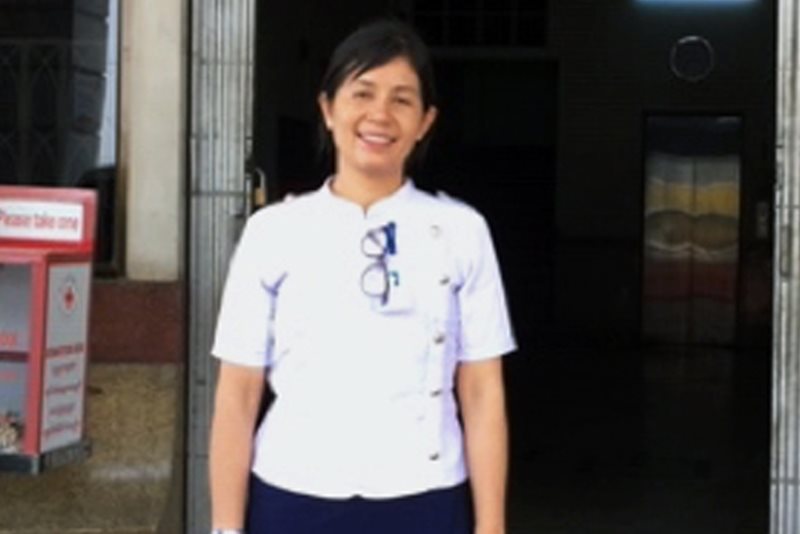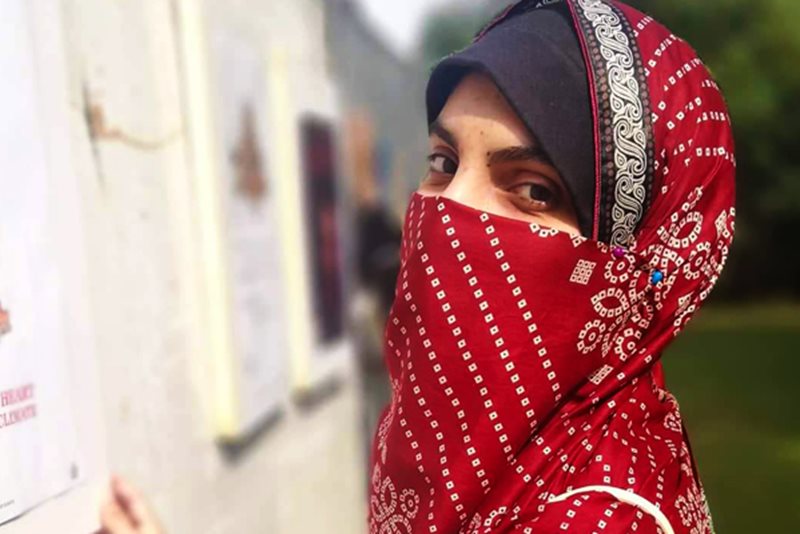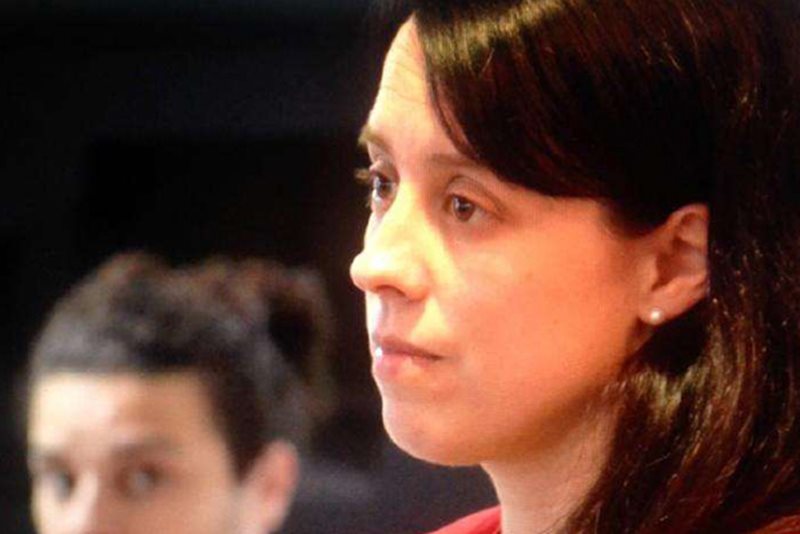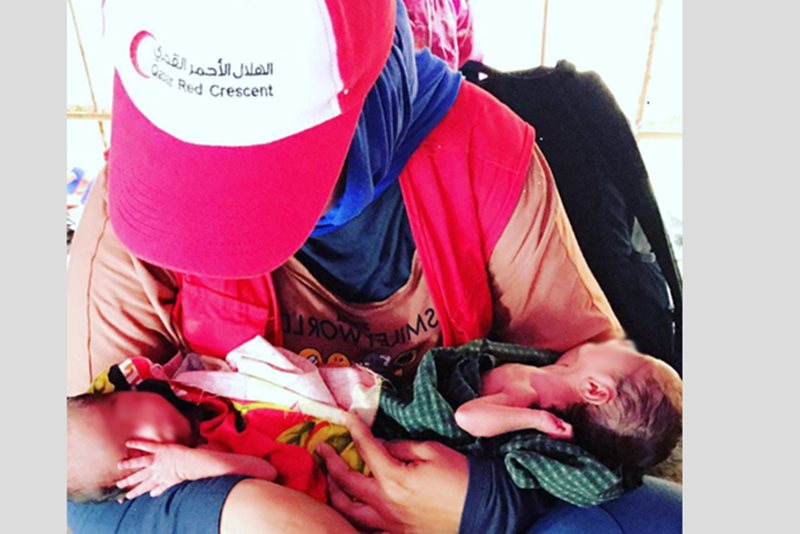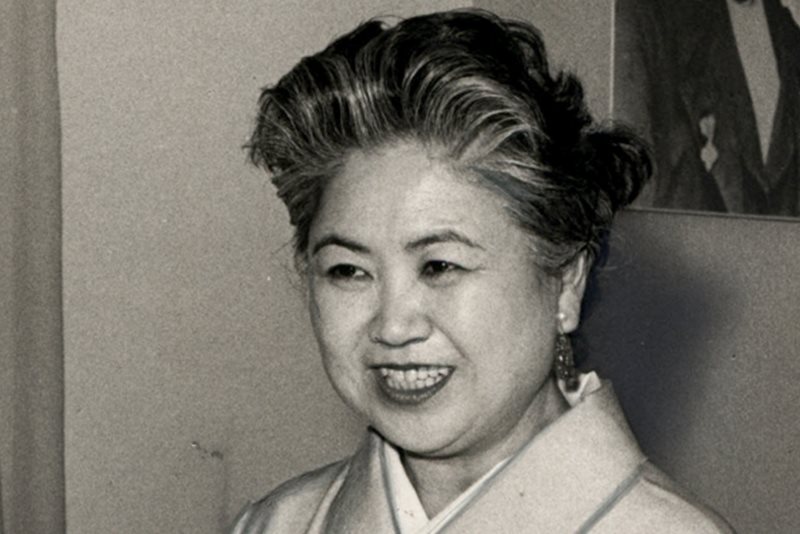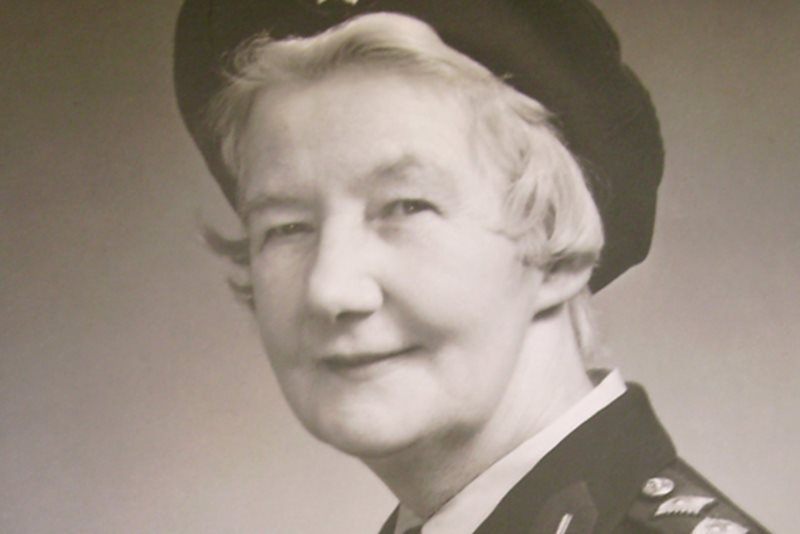Marijke's trajectory within the Red Cross Red Crescent Movement exemplifies the determination required for women to thrive in the world of tech. She is fuelled by a deep commitment to using her skills for global good and breaking down barriers to woman leadership in the male-dominated spheres of data and digital.
Having interned and worked in the field of drought-predictive modelling in Malawi and Lebanon, and responded to natural hazards such as Hurricane Dorian which hit the Bahamas in 2019, Marijke witnessed firsthand the critical role that data and digital can play in humanitarian efforts, as well as working towards collaborative, data-driven solutions. Her experiences underscore the importance of breaking down silos, embracing complexity and working together to address multifaceted challenges.
“In an emergency situation, you cannot do things on your own. There is so much knowledge in different departments that can be helpful for other sectors to respond efficiently. By learning from local communities, we can combine longer-term solutions with addressing the direct impacts of a disaster.”
As the sole woman team lead in the coordination team of a unit that is innovating the humanitarian sector, Marijke has confronted the challenges of operating in an industry traditionally dominated by men. She acknowledges the gender biases that often hinder women's advancement, from being judged for displaying empathy to facing obstacles in asserting authority.
– Marijke Panis, The Netherlands“As a woman, you have to fight way harder. When you enter a room, you are not always perceived as someone with authority in decision making”
Acutely aware of the benefits of bringing different voices to the table, Marijke usually assigns two people with different backgrounds to a project – to grow by learning from each other, and to ultimately make the project outcome better by considering different perspectives. Marijke’s leadership style is characterized by a delicate balance of assertiveness and empathy.
While recognizing significant progress of diversity and inclusion within the broader Red Cross Red Crescent Movement over the years, Marijke also acknowledges persistent barriers that women face in accessing leadership roles, particularly in strategic positions. In the relatively new field of data and digital, where gender equality in leadership is still quite off-balance, she highlights the need for greater representation, transparency about challenges faced, and the recognition of diverse talents as catalysts for meaningful change.
Drawing inspiration from cultures where women occupy prominent leadership roles, naming a high number of female Secretaries-General in African National Societies as an example, Marijke advocates for a shift in mindset within the tech industry. She believes that embracing diversity by empowering women is not only a moral imperative but also a strategic advantage in fostering innovation, underscoring the transformative potential of inclusive leadership.
In Marijke's story, we find a reminder of the power of trust, empathy, and inclusivity. As we reflect on Marijke's leadership journey within the Red Cross Red Crescent Movement, let us amplify the voices of women to challenge conventions, defy expectations, and pave the way towards a more inclusive future at the intersection of data and humanitarian aid.

Between 1990 and 2017, women made up only 2 per cent of mediators, 8 per cent of negotiators and 5 per cent of witnesses and signatories to global peace processes.




